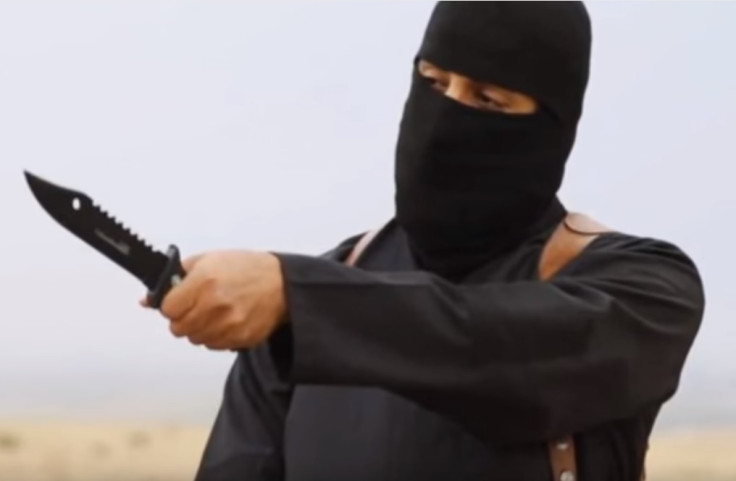Jihadi John: Mohammed Emwazi's death proves we will get you in the end

"To Obama, the dog of Rome," declared Jihadi John to the camera, as members of the Islamic State prepared to behead on film the Syrian soldiers they held prisoner. "Today we're slaughtering the soldiers of Bashar, and tomorrow we'll be slaughtering your soldiers. And with our last mission, we'll bring this final and last crusade and the Islamic State (Isis) will soon, like your puppet David Cameron said, we'll begin to slaughter your people on your streets."
Oh to have had Mohammed Emwazi, the one and only Jihadi John, up at the Old Bailey. To have forced him to trial for the disgusting crimes he committed. To have ground him through the judicial process of a liberal democracy and show him what separates civilisation and savagery; that secular rule of law triumphs over the "divine" brutalism of the Sharia law, which he espoused as an Islamist extremist. But we must settle for second best: his evaporation in an airstrike. It'll do.
Whether we like it or not, Britain is at war with IS. We may not have "boots on the ground" marching through the desert. But our fighter jets are screeching through the skies of the Middle East, our special forces are carrying out deadly raids and, perhaps most importantly, Islamic State is at self-declared war with Westerners. They want to attack us. And given the chance, they will, as Emwazi's gruesome beheadings and the Tunisian beach massacre grimly demonstrate.
Isis is a barbaric, genocidal, theo-fascist death cult. It is dedicated to killing or violently converting all those who do not share its sick beliefs. That means everyone, particularly those of us in the West. Therefore, we must regard any adult engaged in fighting or proselytising for Isis as an enemy combatant.
Emwazi took up weapons when he brandished a knife and used it to behead prisoners, including British citizens. More than this, his status within the Islamic State makes him an important figurehead of the militant group. So he is a combatant and a de facto leader, a powerful tool for recruitment and incitement in their war on the West. As Prime Minister Cameron rightly says, when we strike against Isis militants, like Emwazi, we are acting in self-defence.
In war, the first obligation is to take prisoners and to treat them with dignity, even if they would not do you the same courtesy. Again, this is what separates civility from savagery. But if taking your enemy prisoner is not a viable option, and they are a threat, then the rules of war allow for their killing. Emwazi is an enemy soldier and a legitimate target. This is not, as the pacifist bed-wetters of the Corbynite left define it, an extrajudicial political assassination.
Why not attempt to capture him? This is a question of proportion. Would it be worth spending British forces lives in an uncertain mission to detain just one man, and someone who is an enemy combatant? Such an operation would have to be made deep behind enemy lines. In fact, Emwazi was killed in the city of Raqqa, Syria, which is the Isis capital. It would be incredibly difficult to plan and pull off. Even more so when Emwazi's whereabouts may only be made known to the intelligence services at a moment's notice. The logistics of such a complex, uncertain and dangerous plan would be nightmarish. On practical grounds, capturing Emwazi in a raid is unfeasible. What is the alternative?
There are three choices: try to capture, try to kill, or do nothing. The first is not reasonably possible. As for the latter, Emwazi and the other Islamist fanatics cannot be left alone to murder when we are able to stop them -- and let's not forget that the overwhelming majority of Isis victims are Muslims. In death, Emwazi joins many others, including Reyaad Khan, Ruhul Amin and Junaid Hussain. One by one, they must be dealt with, for reasons of justice and deterrence. If you cannot be captured and brought to trial, which is our first preference, then, as an enemy combatant, you must be killed. As Emwazi's smouldering remains prove, we will get you in the end.
© Copyright IBTimes 2025. All rights reserved.






















